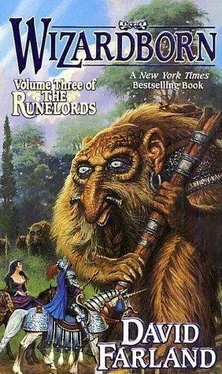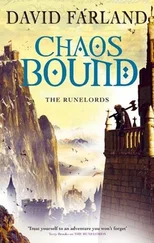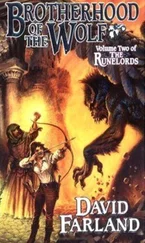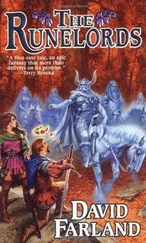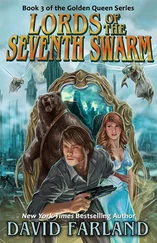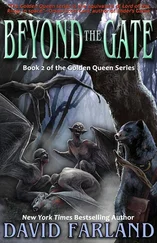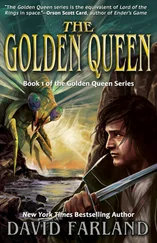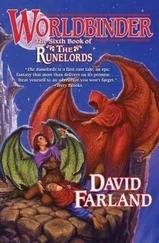David Farland - Wizardborn
Здесь есть возможность читать онлайн «David Farland - Wizardborn» весь текст электронной книги совершенно бесплатно (целиком полную версию без сокращений). В некоторых случаях можно слушать аудио, скачать через торрент в формате fb2 и присутствует краткое содержание. Жанр: Фэнтези, на английском языке. Описание произведения, (предисловие) а так же отзывы посетителей доступны на портале библиотеки ЛибКат.
- Название:Wizardborn
- Автор:
- Жанр:
- Год:неизвестен
- ISBN:нет данных
- Рейтинг книги:5 / 5. Голосов: 1
-
Избранное:Добавить в избранное
- Отзывы:
-
Ваша оценка:
- 100
- 1
- 2
- 3
- 4
- 5
Wizardborn: краткое содержание, описание и аннотация
Предлагаем к чтению аннотацию, описание, краткое содержание или предисловие (зависит от того, что написал сам автор книги «Wizardborn»). Если вы не нашли необходимую информацию о книге — напишите в комментариях, мы постараемся отыскать её.
Wizardborn — читать онлайн бесплатно полную книгу (весь текст) целиком
Ниже представлен текст книги, разбитый по страницам. Система сохранения места последней прочитанной страницы, позволяет с удобством читать онлайн бесплатно книгу «Wizardborn», без необходимости каждый раз заново искать на чём Вы остановились. Поставьте закладку, и сможете в любой момент перейти на страницу, на которой закончили чтение.
Интервал:
Закладка:
The higher powers often answer our petitions.
Men seldom listen.
—Except from The Child’s Book of Wizardry, by Hearthmaster ColRaj Ahten and his men hurried along the Old Fortress Trail south of Maygassa. He’d hoped to get fresh horses, but rode his camel still.
The trickle of fleeing humanity had become a flood—a surging tide of bodies that could not fit within the confines of the trail, but which spilled out on both sides, so that hundreds upon hundreds marched abreast through the jungle. For long hours Raj Ahten had to ride slowly along the side of the road to make it through the throng.
Overhead, in the dark of night, monkeys leapt through the trees shouting in panic and hurling bits of fruit and leaves, until the very jungle seemed to shake.
On the banks of the Kelong River he stopped near a bridge an hour past midnight and watched his people all in one sweep. The Kelong was wide, with rice paddies planted along both banks, and afforded him a good view of the exodus. What he saw made him tremble:
The people hurried along the river by torchlight. At any moment, he saw tens of thousands of them—men with walking sticks and immense bundles on their backs, struggling forward like oxen, wearing only loincloths and a thick coating of sweat. Women carried baskets on their heads or babes strapped to their chests.
Too many men and elephants had tried to cross the bridge at once.
Now the bodies of elephants lay among the shattered timbers in the shallows.
So the people slowed to wade across the river.
All of humanity was there—a proud lord rode beneath a silk canopy upon a white elephant, arrayed in a coat made of cloth of gold. His guards sported fine red silk trimmed with otter fur. They surged through a throng of peasant women adorned only in shifts of crudely dyed cotton. Wealthy merchants traveled as merchants will—in rickshaws pulled by poor laborers so blunt faced and brutish that they seemed more animal than human.
Whole families rode in rugged flatbed wagons drawn by water buffalo. One man pulled a handcart, with his infirm wife loaded in the back as if she were a sack of gingerroot on its way to market. An old philosopher had students, their heads all shaved except for their scholars’ knots, carrying cases of scrolls. Elsewhere, caretakers used bamboo rods to herd madmen and fools who were naked and chained together at the ankle.
The waters of the Kelong flowed slowly. Burning torches reflected from its surface, while smoke hovered above it in a blue haze.
Fathers and mothers groped for a foothold as they bore their young. Raj Ahten spotted a small girl who looked much like Saffira’s eldest daughter, riding in a pack on her mother’s back.
The mother stumbled and slipped beneath the muddy waters of the Kelong. When she surfaced, her child was gone. Peasants nearby shouted and peered into the depths of the river. Some dove under the dark water, seeking the girl by feel alone.
But their panicked search yielded nothing. Soon the child would surface, Raj Ahten knew. She would float facedown for a while, perhaps, until she washed up on the shore with the others that failed to make the passage.
The people kept coming. The exodus stretched beyond the horizon.
A peasant who had nearly crossed the river spotted Raj Ahten’s camel. He pointed and began to shout, “O Great Light, protect us! O Sun Lord, we beg of you!”
Other men and women heard the call, spotted Raj Ahten in the darkness. They began struggling to reach him, staggering in the muddy water. Soon a vast throng began shouting, clasped hands raised before their faces.
Distantly, he could smell death—the familiar stench of reaver’s blight.
He ordered his men to bypass the throng, and quickly forged the river, while pleas for his aid rose up as if on dark wings into the night.
An hour later he reached a hillside that looked over the plains. Three miles off, the jungles and grasslands steamed, turning gray before his eyes.
Masses of humanity snaked over the road in a vast throng. Their lanterns shone like a river of light. They would never outrace the reaver mage’s curse.
On each side of the road, an ancient city carved of white stone lay like broken bones upon the jungle floor.
The air filled with hissing, as if wet flesh sizzled in a fire. Not half a mile downhill the reaver’s curses struck: leaves instantly curled inward, then fell from the trees, leaving branches naked. Vines and smaller limbs dropped or writhed under the onslaught. Entire trees cracked as if lightning had taken them.
Clouds of parrots, weavers, and finches rose up and wheeled above the destruction.
The horizon showed an empty landscape of blight for as far as the eye could see. He was still a hundred and eighty miles north of Kartish.
“There will be famines this year,” Bhopanastrat said, “no matter what we do.”
The enormity of the destruction overwhelmed Raj Ahten. It would take days to truly settle into his bones.
Raj Ahten swatted his camel’s nose with his riding prod, forced it to kneel. He climbed down. “Let the animals forage,” he told his men. “It might be the last food they get for days.”
The eyes of Bhopanastrat and his men bored into his back. He could tell that they all wanted to know what he would do. But no man dared ask.
All day long, his muscles had felt weak somehow. Now his left hand was trembling.
Despite all that he could do, despite his endowments, Binnesman’s curse threatened to destroy him.
He rode through the night, past vacant cities over a landscape that was a surreal horror.
Creatures still lived. Tarantulas crept through the ruins, feeding on mice and linnets. But the trees were down. From horizon to horizon, not a blade of grass survived. The stench of rot filled his nostrils.
His people fled, but not all could make it. Raj Ahten found the dead along the roadsides—men who had worn their hearts out in a single day of running, the old, the infirm. Some of the dead had had their throats cut for a morsel of bread or the use of an ox.
The utter desolation drove out all worries of Wuqaz Faharaqin crying for his blood in the streets, or of Gaborn plotting his downfall. Nothing that men could do would ever compare to the malice of the reavers.
Hours later, just before dawn, he came upon one of his armies—three hundred thousand common soldiers twelve miles north of the Palace of Canaries.
They’d camped in a deserted city for the night to chew their rations and make peace with themselves. Their sullen faces stared up as he rode through the city, men in straw hats or turbans, eyes clouded with despair.
Even if they managed to drive back the reavers, there would be no food for man or horse for more than a hundred miles in any direction. Judging by the grim expressions on their faces, the warriors knew that they went to die. Here and there he heard men muttering solemn prayers in the dark.
When they saw Raj Ahten, some raised a shout of triumph, but most just gazed at him with sullen curiosity.
Hovering over the midst of the camp was a silken balloon shaped like a graak.
Beneath it, his flameweavers sat cross-legged before a campfire, along with his Days. The hairless flameweavers gazed up expectantly as he neared.
“What news from the front?” Raj Ahten asked.
“Aysalla Pusnabish leads your men,” Rahjim answered. “All day yesterday he probed the reavers’ defenses. Many men died.”
“How many?” Raj Ahten asked.
“Most of the knights in your cavalry, O Great One,” Rahjim said.
Raj Ahten breathed out a curse. The mines at Kartish were an open pit with steep sides and tailings piled haphazardly. Such terrain favored reavers, not cavalry.
“How can this be?” Raj Ahten asked.
Читать дальшеИнтервал:
Закладка:
Похожие книги на «Wizardborn»
Представляем Вашему вниманию похожие книги на «Wizardborn» списком для выбора. Мы отобрали схожую по названию и смыслу литературу в надежде предоставить читателям больше вариантов отыскать новые, интересные, ещё непрочитанные произведения.
Обсуждение, отзывы о книге «Wizardborn» и просто собственные мнения читателей. Оставьте ваши комментарии, напишите, что Вы думаете о произведении, его смысле или главных героях. Укажите что конкретно понравилось, а что нет, и почему Вы так считаете.
